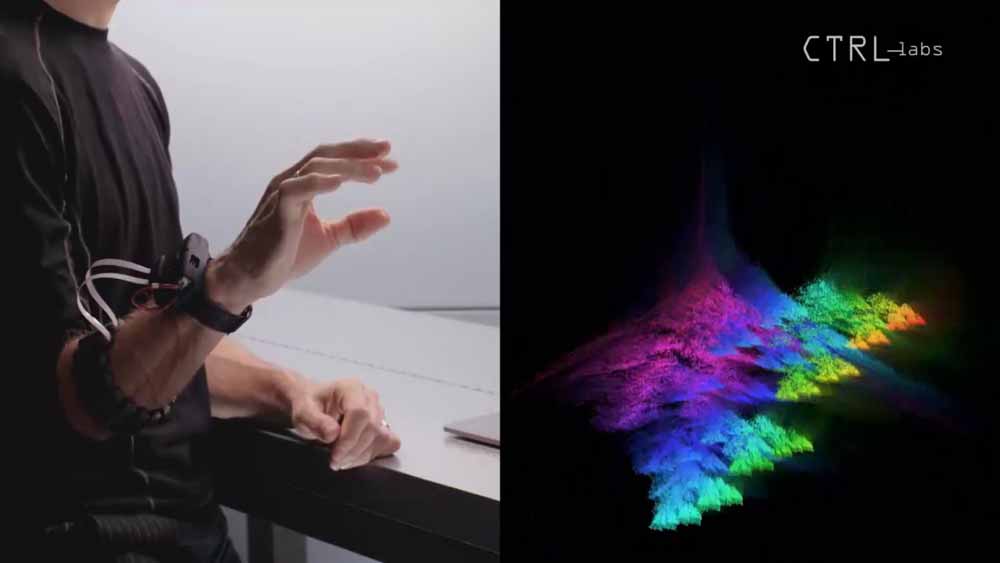Facebook is working on the interfaces of the future, including those that use brain signals. Corresponding products are not that far away, says the head of Facebook’s future laboratory.
In 2019 Facebook bought the start-up CTRL-Labs. They developed a bracelet that records electrical brain signals triggered by hand and finger movements. Artificial intelligence analyzes patterns in the signals and, with a little training, translates them into computer commands. The result would be some kind of mind control.
The technology has plenty of potential, especially with regard to new technologies such as augmented and virtual reality, for which classic input methods such as mouse and keyboard have become obsolete. They should be replaced by interfaces that are as natural as possible and that are as close to the body as possible Eye tracking, voice control and hand tracking belong.
A neural computing revolution?
According to Andrew Bosworth, neural interfaces aren’t that far away anymore. Bosworth heads Facebook Reality Labs, where thousands of Facebook employees work on new computer technologies. “We’re going to see early forms of neural interfaces, forms with a low bit rate, sooner than people think,” Bosworth told CNET. It could be in three to five years.
“It will seem completely conventional and gimmicky at first,” says Bosworth, but it will become more profound as development progresses. “In five to ten years we will see more robust forms of technology that will be disruptive,” predicts Bosworth.
These neural interfaces would still move within existing paradigms and would, for example, allow a touchpad to be operated with thought power. This is already possible today with the appropriate implants, but they are not suitable as end-user products.
“And at some point we will come to a point, perhaps within the next 20 years, where intentions can no longer be translated into movements, but can be interpreted as abstract goals.” These Convergence of AI and neural interfaces describes Bosworth as “exciting”.
Facebook brain chips are excluded
The brain control options described by Bosworth already exist in medical fields of application, for example for paralyzed people. However, this requires a chip to be implanted directly in the brain, a method that Facebook boss Mark Zuckerberg explicitly excludes for his company.
“’Facebook wants to do brain surgery,’ I don’t want to be in the congressional hearings,” joked Zuckerberg. Instead, AR and VR should use the hand, voice and “a little bit of input directly from the brain”. The latter could mean the CTRL-Labs technology.
A bracelet would have the advantage that it can read and interpret electrical brain signals without invasive intervention. It is questionable whether more advanced forms of neural interfaces, as envisioned by Bosworth, will also be possible without surgery.
Research into brain chips has been going on for decades. Elon Musk’s start-up Neuralink wants to accelerate development. They built a surgical machine that can implant brain chips. Neuralink has not yet achieved a breakthrough, but the start-up is improving existing technology and driving research forward in the hope of technological leaps. According to Musk, the first brain chip tests on humans are due soon.
Those: CNET, Cover picture: Ctrl-Labs
Read more about neural interfaces:
–
Facebook: brain interfaces “ready for the market in 3 to 5 years” was last modified: January 15th, 2021 by
–


